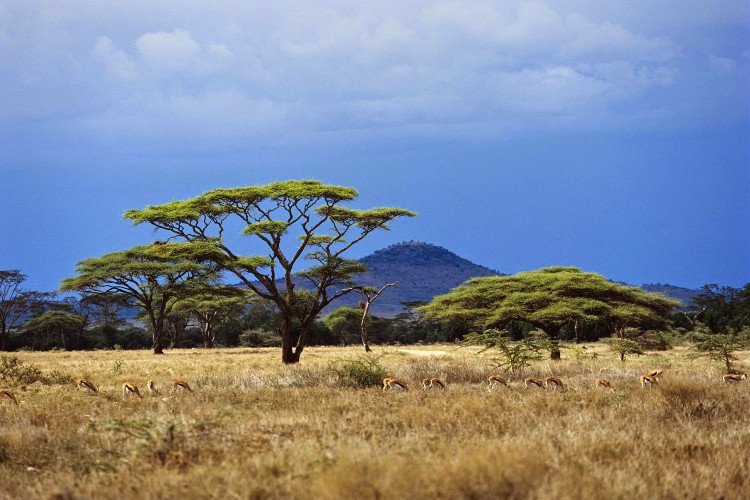Scientists warn of biodiversity in the world is no longer within "safe limits" should be able to threaten human existence.
- Interesting facts about animals didn’t know
The team includes experts from Conservation Monitoring Centre in Cambridge's world United Nations Environment Programme, the Natural History Museum, UK, Natural History Museum of Denmark, and Research Organizations science and technology in the Australian Commonwealth.
They analyzed 2.4 million records of more than 39,000 species in 18,600 different locations around the world. Group found that 58.1% of Earth's surface biodiversity loss is severe enough to pose a question about the ability to maintain the life of billions of people living on it.
One of the researchers, Dr. Tim Newbold of the University College London, said: "This is the first time we quantify the impact of habitat loss of biodiversity globally detail so. We found out most of biodiversity loss around the world is no longer the safe limits as the ecological standards offer more. "
"We know the loss of biodiversity affect ecosystem functions, but this is how specific they are not entirely clear. What we know is that in many places in the world occur situations need human intervention to maintain ecosystem functions ", he added.
"Safety Limits" is said to be a 10% reduction of species richness than the original number before humans occupied the ground. However, this definition is controversial because some researchers believe that the reduction rate of 70% was located in a safe area. Even so, the researchers discovered the richness of species drops to 88% when there is a new species in the system.
Experts warn that there is an alarming trend in the rate of extinction on Earth. Grassland, savannah and bush are the areas worst affected, followed by the jungle.
"The biggest change - occurred in most of the places people live - can affect the physical and psychological. To solve this, we will have to preserve the remaining areas of the carpet natural vegetation and restore human land use, "Dr Newbold said.
Professor Andy Purvis, of the Natural History Museum in London, who also participated in the study, expressed concern at the findings above. Professor said: "The decision not worry so much about the recession, but a recession may have ecological consequences worse ... Until and only when we have can bring biodiversity rate increase, if not then we are gambling with the ecological ".
They said that only reverse the loss of biodiversity, the new benefit system to regenerate and ensure human life.
Scientists are also considering redefining the current geological era, the Anthropocene Epoch consider it (the era of human / human century). Human reason has caused tremendous impact on the Earth, including the things that people fear will cause a mass extinction in the history of the sixth planet.
"We know the loss of biodiversity affect ecosystem functions, but this is how specific they are not entirely clear. What we know is that in many places in the world occur situations need human intervention to maintain ecosystem functions ", he added.
"Safety Limits" is said to be a 10% reduction of species richness than the original number before humans occupied the ground. However, this definition is controversial because some researchers believe that the reduction rate of 70% was located in a safe area. Even so, the researchers discovered the richness of species drops to 88% when there is a new species in the system.
Experts warn that there is an alarming trend in the rate of extinction on Earth. Grassland, savannah and bush are the areas worst affected, followed by the jungle.
"The biggest change - occurred in most of the places people live - can affect the physical and psychological. To solve this, we will have to preserve the remaining areas of the carpet natural vegetation and restore human land use, "Dr Newbold said.
Professor Andy Purvis, of the Natural History Museum in London, who also participated in the study, expressed concern at the findings above. Professor said: "The decision not worry so much about the recession, but a recession may have ecological consequences worse ... Until and only when we have can bring biodiversity rate increase, if not then we are gambling with the ecological ".
They said that only reverse the loss of biodiversity, the new benefit system to regenerate and ensure human life.
Scientists are also considering redefining the current geological era, the Anthropocene Epoch consider it (the era of human / human century). Human reason has caused tremendous impact on the Earth, including the things that people fear will cause a mass extinction in the history of the sixth planet.
Read more:
- emperor penguin facts for kids – penguin facts and infomation
- Amazing dog facts you may or may not know





0 nhận xét:
Đăng nhận xét